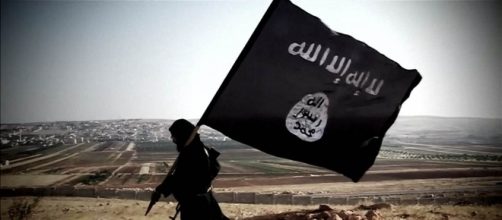The last few years have seen historically high levels of terrorist activity in Europe. Not only Britain is suffering now from three terrible attacks were committed in less than three months, killing almost 30 people, but also, the whole continent has been struggling to fight the high intensity of terrorist attacks. From 2014 and up to the date, radical attacks killed 449 people in Europe only, more than all previous years combined since World War II.
However, death tolls were not the terrorists’ goal since the day they were radicalised. In 1974, one of the pioneer experts on terrorism and security, Brian Michael Jenkins said: “terrorists want a lot of people watching, not a lot of people dead”.
He described it as an ideology, naming it “the theatre of terror” concept.
Terrorism as a theatre theory
The same concept was used by many scholars after that to examine the evolution of modern terrorism. They illustrated that metaphorically, radical group terrorists are actors who use social media as a theatre to act their orchestrated violence in a play in front of the audience. Terrorism is considered a process of communication aimed at manipulating political attitude and behaviour.
Terrorists want to attract attention to their cause and create fear, doubt and wary. They seek to promote overreaction that would lead to a clumsy react conducted by the targeted state. When those states are provoked by terrorists and react with a military mission killing terrorists with not radicalised civilians, They serve the radical group’s interest.
Jihadists have figured out how to use social media to make an impact, even though their numbers are minuscule in comparison to the overall user base. #ISIS formed a highly organised social media campaign uses deceptive tactics and shows a sophisticated understanding of how such networks operate.
ISIS has two main strategic goals. First, brutality by showing the depiction of harsh punishments for alleged spies and traitors. The use of brutality represents triumphalism and power. They provoke the international media and cause knee-jerk responses from hostile policymakers. Their second goal is highlighting the violence of others to justify its extreme acts of brutality.
Both goals would never be achieved without being part of their theater
Propaganda and spreading messages globally rely on the target audience. Terrorism is a theatre where they do not target spreading their ideology and state of behaviour. However, It is an act to provoke emotional appeal to the audience. They seek the media and the audience reaction and overreaction.
It is true that audiences have the privilege of choice. They can pick and choose but only within the limits of what the media will offer. The audiences are not sovereign even if they have the freedom of choice. ISIS’ Propagandists have the power to raise the frequency and intensity and adjust the character of their messages in the face of audience resistance.
Moreover, part of the responsibility is on governments and media outlets that appear as an assistant actor on the theatre of terror. 80% of the published materials about terrorism are a wild exaggeration. ISIS has been introduced and labelled in media as a shining celebrity, which attracts the audience and increases viewership.
Neglect fears and worries is the key
Finally, ISIS has used violence instrumentally to fuel its triumph message. It has carried out dozens of terrorist attacks in countries outside Syria and Iraq to announce its presence as an organised form of a state, not a group or a movement. They are fostering impressions that the group is growing in strength in new theatres.
To people in Britain, France, Germany, Egypt, Afghanistan, Philippine, Australia, Syria, Iraq and any country that has been suffering from terrorism, do not let them achieve their goal.
Their success feeds on spreading intimidation and outrage. They sustain themselves with emotions and sufferance.
Neglect fears and worries. Show your solidarity and as Franklin Roosevelt once said, “The only thing we have to fear is fear itself.”


